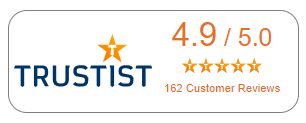A Software Developer Apprenticeship (Also referred to as a Coding Apprenticeship) is a great place to begin a rewarding career in this exciting industry. You'll learn the underlying skills required to succeed in the role, and begin a career in software development.
Software developers are the constructors of much of the digital world. They work at the forefront of the digital industry – adapting and evolving to the ever-changing technologies and devices that constantly flood the market.
Good developers are always in demand, thanks to the relentless digital appetites of today’s businesses. Decent salaries, career progression and fresh opportunities can be expected.
Software Developer apprenticeships available in Crewe, Cheshire, the North West & London.
For courses in London, please view our Tech Academy

Software developers design, build, test and maintain software systems. Whether working on websites, applications, games or productivity software, you’ll help create it all from the ground up.
Whatever the brief – from putting together creative animations, building e-commerce capability, or solving problematic puzzles by interpreting lines of code – a job in software development requires a conceptual mind and a keen eye.
Away from the screen, software developers also need good communication skills for a schedule full of client briefings and project planning meetings.

-
Writing code in various programming or scripting languages.
-
Coding and testing software.
-
Creating products within design, time and cost constraints.
-
Troubleshooting and fixing bugs.
-
Analysing complex systems requirements.
-
Monitoring performance.
-
Building and maintaining databases
-
Writing and preparing technical design documentation.
-
Balancing user needs with software requirements.
-
Collaborating with teams across a company.
-
Interpreting briefs and discussing requirements with clients.
-
Attending progress meetings with developers, designers and managers.
The increase in demand for digital solutions combined with a significant skills shortage in the tech sector, means that completing a Software Developer Apprenticeship is a great route for ample employment opportunities. Take a look at some of jobs this apprenticeship could lead to...

Want to take your love of gaming and turn it into a career? Game Developers design, program, and test games – combining an interest in games with skills in maths, computers and creative arts.
Game developers can choose from a broad range of areas to specialise in, from programming console, computer, and mobile video games. You could work for a large gaming company, freelance or smaller game development studios. Whichever area you choose to work in, you’ll have to show commitment, determination and progress – it can be competitive and demanding work, successful game developers are those who spend a lot of their free time developing.
What can you earn as a Games Developer? Typical starting salaries are around £19,000 to £25,000. Once you have a few years' experience, you may earn a salary of £35,000 to £50,000. In a senior position, such as team leader or technical director, your salary can range from £55,000 to in excess of £75,000.

Web Developers are the men and women behind the internet curtain. They are responsible for designing, coding and modifying websites as well as creating reliable web applications and services. They can deal mainly with back end functionality, front end interface and visual design – or a mix of the two known as “full-stack development”.
High-performance and user-friendly design are at the heart of being a good web developer as well as a strong understanding of different coding languages and web functions. As a Web Developer you could work for an agency or freelance on a variety of different client projects.
What can you earn as a Web Developer? Salaries for junior or entry-level web developers can range from £19,000 to £25,000. Mid-level and senior web developers usually earn between £25,000 and £35,000. Lead developers typically earn between £35,000 and £60,000, potentially rising to £75,000 in London.

Applications Developers write apps for particular operating systems, such as Windows or Android, or different platforms, including computers and mobile devices. As an Applications Developer, your job will be to understand software requirements of a client or company and create programming code to develop applications for specific business needs.
There is a huge variety in the types of applications you could work on from unique mobile applications that are built for a specific purpose for a large company or web applications development such as online forms, shopping carts, word processors, spreadsheets, video and photo editing.
What can you earn as an Applications Developer? Graduate salaries for applications developers start at around £20,000. Once established, you can expect to earn £34,000 to £40,000. As a senior applications developer, your salary will be in the region of £45,000 to £70,000.
Having a Software Developer Apprenticeship qualification is the first step to securing your ideal role in the software industry, but what else do you need to make it in the tech world? Here are some important qualities you can develop that will help you land that dream job...

Above all, Software Developers need to have the technical skills to be able to produce clean, logical and high-quality code. They should have a strong grasp of the technical foundations of development as well as the willingness to build on their technical skills.

Great Software Developers are curious and passionate about what they do and constantly work to refine their practises. Many love development so much that they even code in their spare time. They are also curious learners, keen to learn a new toolset or programming language to make their work better.

Software Developers must be focused as they can often be self-directed, so being good at managing your own work is vital. As a Software Developer, you also need to be focused on the requirements and goals of the client and final users. Your job is to try to focus on their needs and build features that are useful to them.

A good Software Developer exhausts all resources in search of a solution. They are not afraid to ask a team member, team leader or research resolutions elsewhere. Often you will have to find workarounds and use your initiative to solve programming problems, so developing a resourceful nature and attitude goes a long way in this line of work.

Not everyone, including potential clients, understand what effort goes into coding and developing a product. They might not understand the extent of their requirements, therefore it’s up to you to remain patient and explain your work to non-technical people. As a Software Developer, programming can be stressful, you’ll also have to deal with glitches and code not performing the way you expected. It’s important that you remain patient, clear-headed and persevere to find solutions.
- City & Guilds Level 4 Software Developer Apprenticeship
- City & Guilds Level 4 Diploma in Software Development Methodologies (Exam)
- Microsoft Technical Associate HTML5 Application Development (Offered by escalla as added bonus)
Individual employers will set the selection criteria, but this might include:
- GCSEs
- A-levels
- Level 3 apprenticeship or other relevant qualification
- Relevant experience of HTML, CSS, JavaScript,
- An aptitude test with a focus on functional maths
The duration of this software developer apprenticeship is typically 12 months, with a 3-month window for the end point assessment.
In the first twelve months of the programme, apprentices will develop their web development skills in the workplace and build a portfolio of evidence demonstrating their capabilities. Support will also be available from an assessor, who will visit apprentices at work every 10 weeks, and check progress every 5 weeks electronically.
Apprentices will receive week-long blocks of full-time training for 8 weeks across the year. This will take place at the escalla Academy in Crewe. Training topics include:
- Personal Development
- Dynamic Websites using HTML5, CSS, JavaScript, PHP & MySQL
- Agile and Waterfall methodologies.
After completing 12-months of training and development, apprentices will submit their portfolio of work experience – along with a reference from their employer. This begins the end point assessment (EPA) stage. The EPA consists of a synoptic project and an assessor interview, which will determine the overall grade of the qualification (Pass | Merit | Distinction).
For employers: £18,000 with full and partial government funding available. Levy payments accepted.
For apprentices: Funding is provided by the government and employer, apprentices do not pay to do an apprenticeship.
- Funding Band 12 (£18,000).
- Apprentices under 19 years of age on the day of signup will receive 100% funding.
- Levy payments are accepted towards this web developer apprenticeship.
- Take and interpret given software development requirements to estimate effort to deliver the work product to enable accurate costs to be established.
- Break software development activities down into logical units of work to enable sequencing and ensure the best possible structuring of activities to deliver a high quality product right first time.
- Report progress accurately throughout the development life-cycle stages to ensure adequate audit trails of key worksteps such that the organisation can demonstrate how the product has been created for quality and commercial purposes.
- Identify and report any impediments to software development activities and propose practical solutions.
- Convert customer requirements into technical requirements, both functional and non-functional to ensure that customers' expectations are accurately reflected in the software products developed.
- Identify and select the most appropriate technical solution, taking into consideration coding best practice and appropriate quality standards.
- Communicate software development solutions to a range of internal or external stakeholders to ensure clear understanding of requirements and how they have been met or adjusted.
- Consider security implications of proposed design to ensure that security considerations are built in from inception and throughout the development process.
- Write logical and maintainable software solutions to meet the design and organisational coding standards (Software Development Lifecycle -Implementation and Build phase).
- Apply security best practice to the software solution throughout the software development life-cycle.
- Create and maintain appropriate project documentation to explain the development process and resources used.
- Apply appropriate recovery techniques to ensure the software solution being developed is not lost (Software Development Lifecycle -Implementation and Build phase).
- Implement appropriate change control to ensure that software development changes may be tracked and quality risks managed.
- Undertake unit testing of solutions, with appropriate levels of test code coverage, to identify and, where necessary, resolve issues (Software Development Lifecycle -Implementation and Build phase).
- Perform testing of the software solution to ensure a high quality output (Software Development Lifecycle -Test phase).
- Deliver a suitably documented deployable solution to the customer for their use (Software Development Lifecycle -Deploy phase).
- Support delivery of one or more software deployment phases, such as trials and final release, to ensure that software developer outcomes are deployed correctly.
- Provide support during software trials and after final release to ensure that customers understand and can correctly apply the product, and risks are mitigated.
- Respond appropriately to given Service Level Agreements (SLAs) to ensure that time and resources invested in software development activity are allocated appropriately to deliver good customer service.
- Apply suitable 'bug fix', appropriate to the severity and priority of the software development issue identified.
- Practice continuous self learning to keep up to date with technological developments to enhance relevant skills and take responsibility for own professional development.
- All stages of the software development life-cycle (what each stage contains, including the inputs and outputs)
- Roles and responsibilities within the software development lifecycle (who is responsible for what)
- The roles and responsibilities of the project life-cycle within your organisation, and your role
- How best to communicate using the different communication methods and how to adapt appropriately to different audiences
- The similarities and differences between different software development methodologies, such as agile and waterfall.
- How teams work effectively to produce software and how to contribute appropriately
- Software design approaches and patterns, to identify reusable solutions to commonly occurring problems
- Organisational policies and procedures relating to the tasks being undertaken, and when to follow them. For example the storage and treatment of GDPR sensitive data.
- Algorithms, logic and data structures relevant to software development for example:- arrays- stacks- queues- linked lists- trees- graphs- hash tables- sorting algorithms- searching algorithms- critical sections and race conditions
- Principles and uses of relational and non-relational databases
- Software designs and functional or technical specifications
- Software testing frameworks and methodologies
- Create logical and maintainable code
- Develop effective user interfaces
- Link code to data sets
- Test code and analyse results to correct errors found using unit testing
- Conduct a range of test types, such as Integration, System, User Acceptance, Non-Functional, Performance and Security testing.
- Identify and create test scenarios
- Apply structured techniques to problem solving, debug code and understand the structure of programmes in order to identify and resolve issues
- Create simple software designs to effectively communicate understanding of the program
- Create analysis artefacts, such as use cases and/or user stories
- Build, manage and deploy code into the relevant environment
- Apply an appropriate software development approach according to the relevant paradigm (for example object oriented, event driven or procedural)
- Follow software designs and functional or technical specifications
- Follow testing frameworks and methodologies
- Follow company, team or client approaches to continuous integration, version and source control
- Communicate software solutions and ideas to technical and non-technical stakeholders
- Apply algorithms, logic and data structures
- Interpret and implement a given design whist remaining compliant with security and maintainability requirements
- Works independently and takes responsibility. For example, has a disciplined and responsible approach to risk and stays motivated and committed when facing challenges
- Applies logical thinking. For example, uses clear and valid reasoning when making decisions related to undertaking work instructions
- Maintains a productive, professional and secure working environment
- Works collaboratively with a wide range of people in different roles, internally and externally, with a positive attitude to inclusion & diversity
- Acts with integrity with respect to ethical, legal and regulatory ensuring the protection of personal data, safety and security.
- Shows initiative and takes responsibility for solving problems within their own remit, being resourceful when faced with a problem to solve.
- Communicates effectively in a variety of situations to both a technical and non-technical audience.
- Shows curiosity to the business context in which the solution will be used, displaying an inquisitive approach to solving the problem. This includes the curiosity to explore new opportunities, techniques and the tenacity to improve methods and maximise performance of the solution and creativity in their approach to solutions.
- Committed to continued professional development.
Register your interest
If you would like to apply for this apprenticeship, please contact us.
t: 01270 500 102
e: apprenticeships@escalla.co.uk


